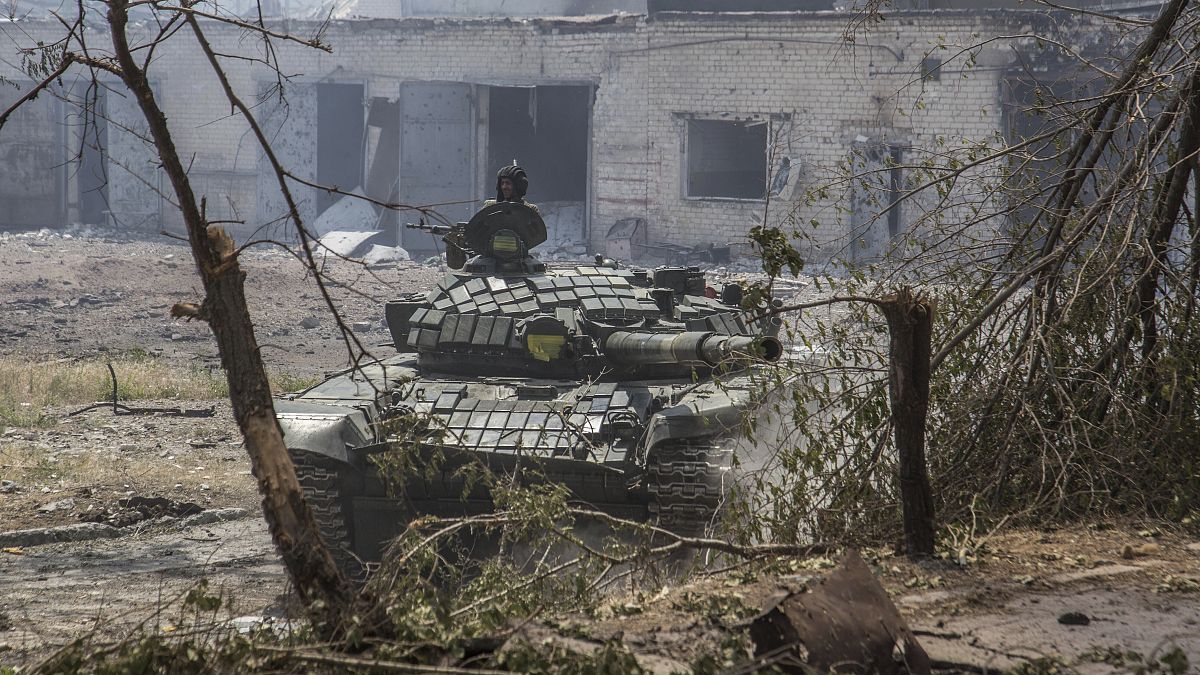Thousands of civilians remain trapped in Ukraine's devastated eastern city of Sievierodonetsk, with supplies of food and clean water running low.
Thousands of civilians remain trapped in Ukraine's devastated eastern city of Sievierodonetsk.
Supplies of food, clean water, electricity and sanitation are running low as Russian forces seek to take complete control of the city.
Speaking to Euronews, Jan Egeland, Secretary General of the Norwegian Refugee Council noted how different things used to be. He was in Sievierodonetsk, the de facto capital of Ukrainian-controlled Luhansk, shortly before the Russian invasion.
"This was a vibrant city, a lively city," he said. "Now it's destroyed."
The Ukrainian governor of Luhansk, Serhiy Haidai, has said that "heavy fighting in Sievierodonetsk continues today as well".
"The situation in the city is getting worse", Haidai said, "because Russian forces have more manpower and weapons. But our military is holding back the enemy from three sides at once," he added.
Over 500 civilians, including 38 children also remain holed up beneath the Azot chemical plant. Much like the Azovstal steel plant in Mariupol, many have deicded to shelter in tunnels underground in the complex.
Meanwhile all three bridges out of the city have been destroyed, and Russian attacks are thwarting any attempts to evactuate according to Haidi.
Jan Egeland also expressed concern at the increasingly poor humanitarian situation in the industrial zone.
"This is a chemical plant, there can be leaks. It shouldn't be attacked at all. What we're appealing for now is safe passage out for the civilians and safe passage in for more humanitarian relief."
Egeland added that "a complete ceasefire that is durable" was needed for "a real humanitarian corridor". Ukrainians should be allowed to go to destinations of their own choosing, not be forced to go to Russian-controlled territories, as Moscow is imposing.
Reflecting on the humanitarian situation in general, he said the war in Ukraine had provoked the "largest displacement crisis in living memory".
"14 million people have been forced away from their homes because of blunt violence. We never saw that before, even Syria didn't produce as many millions, 14 million displaced in four months," Egeland told Euronews.
"However, there is also some hope, there is more international attention and solidarity for Ukraine than for any other of the international emergencies."
Watch the interview with Jan Egeland in the video player above.
